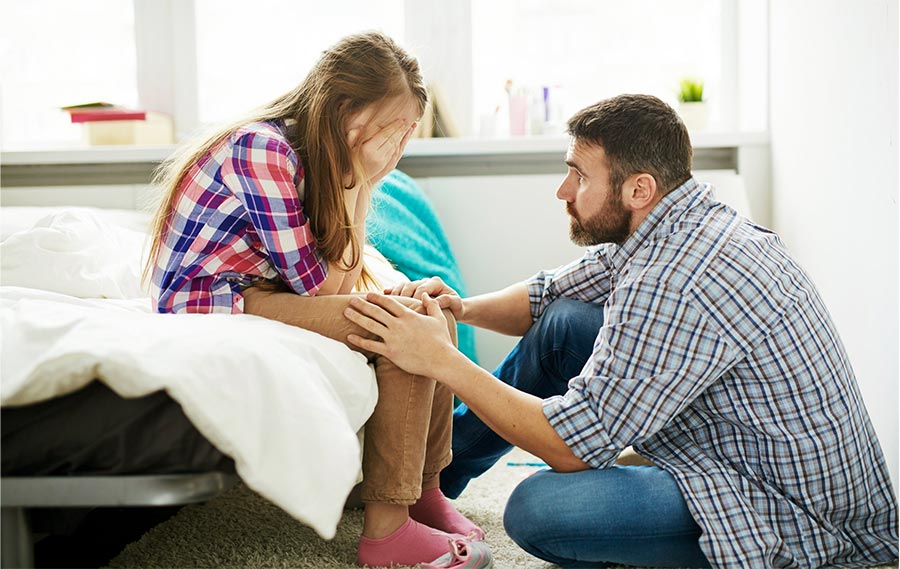
Marijuana / Cannabis / Hemp
What We Know
|
|
|
-
Marijuana, cannabis and hemp are three closely related plants. Generally “cannabis” is the name for any of these plants. Marijuana refers to dried plant material that contains more than 0.3% THC (tetrahydrocannabinol, the active ingredient). To be considered a hemp plant, the plant material must be below 0.3% THC.
-
Unlike many adults, teens generally use THC by vaping or by eating THC containing products (gummies, cookies, etc). Teens who vape nicotine are more likely to also vape THC. Edibles are dangerous because the effects take much longer to be felt leading some users to overdose.
-
THC use may have permanent effects on the developing teen brain. Effects may include difficulty problem solving, problems with memory and learning, poor attention and reduced coordination.
-
Teens who use THC are more likely to fail to graduate from high school or not finish college.
-
THC use has been linked to depression and social anxiety in teens. Some people who use THC develop a temporary psychosis (hallucinations and paranoia for example)
-
CBD is not psychoactive and by law should only contain 0.3% THC or less. However, many CBD products are not tested or are tested in uncertified labs, so THC content may vary widely.
|
 |
|
|
|
How You Can Help
|
-
Make sure your teen knows fact from myth. Some teens think marijuana is good because it’s “natural”. Remind them that there are many plants that aren’t good for you from tobacco to poison ivy.
-
If you use THC products, keep them safe. Oregon Area Cares Community Coalition can provide you with a free locking storage bag or box to keep your products out of young hands. Get one by completing our Request for Resources form.
-
Remind your youth that legalizing adult use for doesn’t mean THC products are safe, especially for youth. Young people who begin using THC have already developed marijuana use disorder.
-
Help your teen practice strategies to get out of situations where THC is in use. Before they go out, ask your teen Who they will be with, What they will be doing, Where they will be, and When they will be home.
|
What We Know
|
|
|
 |
|
|
-
Marijuana, cannabis and hemp are three closely related plants. Generally “cannabis” is the name for any of these plants. Marijuana refers to dried plant material that contains more than 0.3% THC (tetrahydrocannabinol, the active ingredient). To be considered a hemp plant, the plant material must be below 0.3% THC.
-
Unlike many adults, teens generally use THC by vaping or by eating THC containing products (gummies, cookies, etc). Teens who vape nicotine are more likely to also vape THC. Edibles are dangerous because the effects take much longer to be felt leading some users to overdose.
-
THC use may have permanent effects on the developing teen brain. Effects may include difficulty problem solving, problems with memory and learning, poor attention and reduced coordination.
-
Teens who use THC are more likely to fail to graduate from high school or not finish college.
-
THC use has been linked to depression and social anxiety in teens. Some people who use THC develop a temporary psychosis (hallucinations and paranoia for example)
-
CBD is not psychoactive and by law should only contain 0.3% THC or less. However, many CBD products are not tested or are tested in uncertified labs, so THC content may vary widely.
|
|
|
|
How You Can Help
|
-
Make sure your teen knows fact from myth. Some teens think marijuana is good because it’s “natural”. Remind them that there are many plants that aren’t good for you from tobacco to poison ivy.
-
If you use THC products, keep them safe. Oregon Area Cares Community Coalition can provide you with a free locking storage bag or box to keep your products out of young hands. Get one by completing our Request for Resources form.
-
Remind your youth that legalizing adult use for doesn’t mean THC products are safe, especially for youth. Young people who begin using THC have already developed marijuana use disorder.
-
Help your teen practice strategies to get out of situations where THC is in use. Before they go out, ask your teen Who they will be with, What they will be doing, Where they will be, and When they will be home.
|